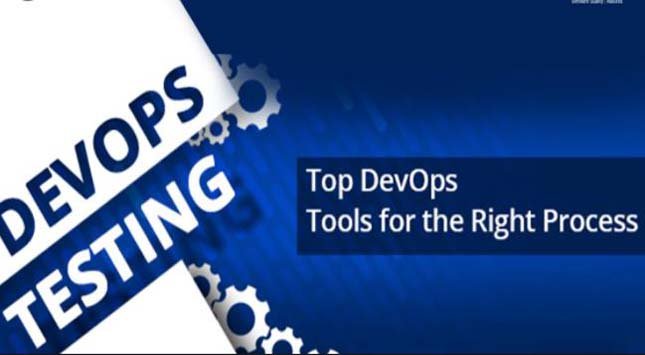Technologies transformed the world into a place where everything is about easy access. All the companies ultimately aim toward client satisfaction.
Most companies maintain a bank of software tools to communicate with customers through online services and increase overall performance.
Usually, companies that follow the traditional way of software development and IT operations confront conflicts between the development team and operation team, leading to delayed work. This is where DevOps comes into the picture.
What is DevOps?
DevOps is a set of practices that work to automate and integrate the processes between the software development team and IT operation team, so they can build, test, and release software faster and more reliably.
DevOps is the methodology used to bridge the gap between the development team and the operation team. They work together across the entire software application life cycle. It is an infinite loop in which everything is continuous. The heart of DevOps is the integration phase – integrating all the stages of the process like planning, coding, building, testing, deploying, operating, and monitoring.
DevOps Consulting Companies and Services
In this fast-changing world, many organizations are trying to adopt DevOps because of its reliability and this has led to the popularity of DevOps. Now there are many DevOps consulting companies and they provide DevOps services and solutions. The companies assess and analyze what an enterprise has on the table from the technology perspective.
Algoworks, Sogeti, Perficient, NetEnrich, Contus, XenonStack, etc are some of the DevOps companies or DevOps services in the USA. These companies provide services for enterprises to achieve efficiencies in IT operations and guide and facilitate their DevOps transformation to cut costs, reduce operational failure, improve quality, and increase the speed of delivery.
The DevOps consultant resolves issues, educates employees to use DevOps tools, and works according to the principles of DevOps. The companies also provide DevOps managed services to development teams and businesses that run or want to run applications.
With the help of managed services, companies can always meet the demands of their customers. They also provide DevOps testing services by giving the team modern testing tools to facilitate agile development. The use of DevOps solutions is aimed at bringing improved collaboration across teams and better changes in the business.
DevOps Tools
The service providers offer tools that facilitate collaboration between an organization’s software development and operation team. The DevOps tools help to automate the process. It emphasizes communication, facilitating workflow, and collaboration. There are tools to help at every stage. These tools vary by service models and licensing terms.
Seven Steps to Choose the Right DevOps Tools
Choose the right DevOps tools by understanding the seven key practices of DevOps.
- Planning
- Building
- Testing
- Integration
- Deployment
- Monitoring
- Feedback
Planning Tools
Planning is essential and choosing the right tool is important to ensure proper development. The planning tools offer to brainstorm and allow to prioritize the action and put together different insights into inputs.
JIRA, Redmine, Hipchat, Confluence, etc. are some of the good DevOps planning tools to use.
Building Tools
Build tool helps the developers to manage work and the build system software is core to DevOps. In this stage, the developer writes source code for a specific stage of development before the next step in the cycle. The tool should be able to interact well with the different members of the toolchain.
Apache Maven, Docker, and Puppet are such tools.
Integration Tools
Continuous integration is a practice where developers combine their code into a central repository, after which automated builds and tests are run. Integration tools optimize code builds and empower automation.
Deployment Tool
Rapid, continuous deployment of every CI build is another core technical practice of DevOps. There are a variety of tools to help the developers organize continuous deployment. Before choosing the tool you should consider all the steps involved with the deployment code.
Capistrano, Otto, and Deployer are some of the DevOps deployment tools to go for.
Monitoring Tool
The monitoring stage is a very important cause for the union of development and operation teams to monitor the process continuously to fix the problems.
New Relic, BigPanda, and Bosun are the best DevOps monitoring tools.
Feedback Tool
Feedback is very important. It comes from multiple sources. It gives the developers insight into what the users think and address the problem, reducing inefficiency.
Pendo, Flowdock, Hipchat are such tools.
DevOps automates everything. It aims to shorten the system development life cycle and provide continuous delivery. It is important to identify the right DevOps tools for all the different parts. With the right DevOps tools come benefits like an increase in customer satisfaction, quantity and quality of services provided, and operating efficiency.
Bottom-Line
Selecting the right tools for DevOps is a complex task, and requires good homework. These tools are new and most enterprises are not much familiar with the concept. Consider the changes your organization will undergo over the next couple of years and be prepared to constantly evaluate and select the right tools in terms of what works and what needs to be improved.
Also, having a lab, where you can explore and analyze the benefits of DevOps tools can help in implementing the DevOps better. As the need to constantly develop and monitor the DevOps operations will continue over the next coming years, it’s crucial to build into your plans and tool choices today.
Choosing the right DevOps tools is critical when taking a hard look at your current software and IT operations process. In big companies, the entire development lifecycle is split by the department, which can be further simplified with the help of DevOps.
DevOps makes lifecycle faster, and highly automated -whether it is cross-functional or within one team. If you follow the steps outlined above, you should be good to go in choosing the right DevOps tools.
There are plenty of DevOps services in the USA. Choose the right DevOps tools with the help of these aforementioned steps to simplify and enhance the organizational development cycle.






